Digital Humanism: People first!
EC MEDICI Framework of cooperation
Session 248
The PEOPLE-FIRST session aims to promote the development of digital and industrial technologies that are centred around people and uphold ethical principles. This session aligns with the overarching objective of building a strong, inclusive, and democratic society that is well-equipped for the challenges of digital transition.
Session Position and Approach: PEOPLE-FIRST aims to embed ethical, inclusive innovation into the technological landscape. By bringing together stakeholders from ICT, STEM, and social sciences, we tackle the diverse societal impacts of digital transformation. This interdisciplinary collaboration ensures that technological advancements are accessible and beneficial, reducing inequalities and promoting inclusivity for all societal groups. At the heart of our initiative is the empowerment of end-users and workers, actively involving them in the development lifecycle of technologies, fostering a participatory design process.
This approach not only enhances the relevance and adoption of these technologies but also ensures that they align with real-world needs and ethical standards. Through this engagement, we cultivate a sense of ownership among users, which is crucial for the widespread acceptance and success of technological solutions. Session commitment also extends to fostering social innovation, particularly in critical sectors such as healthcare, mobility, and public administration, which are vital to the future in the digital domain. The speakers strive to depict frameworks and tools that encourage innovation, ensuring that it results in practical improvements in everyday life while adhering to ethical practices.
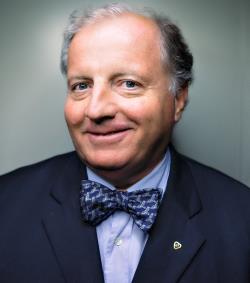

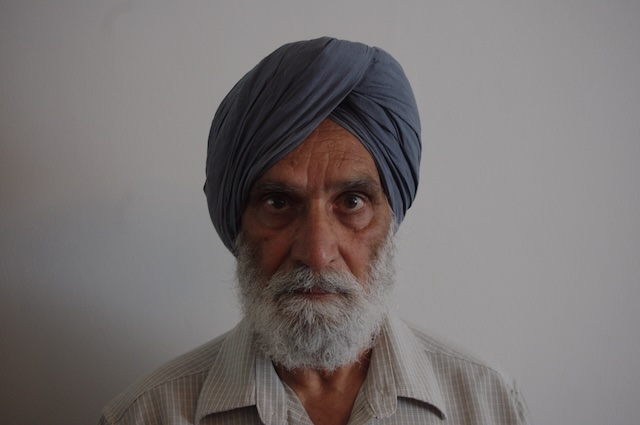
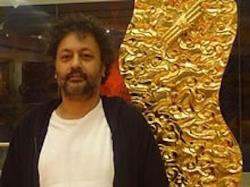

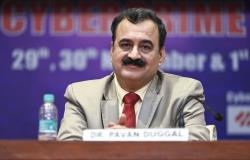
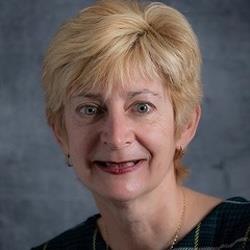
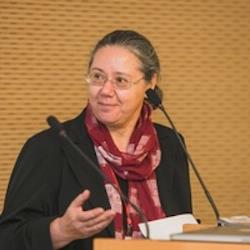
-
 C2. Information and communication infrastructure
C2. Information and communication infrastructure
-
 C3. Access to information and knowledge
C3. Access to information and knowledge
-
 C4. Capacity building
C4. Capacity building
-
 C5. Building confidence and security in use of ICTs
C5. Building confidence and security in use of ICTs
-
 C6. Enabling environment
C6. Enabling environment
-
 C7. ICT applications: benefits in all aspects of life — E-government
C7. ICT applications: benefits in all aspects of life — E-government
-
 C7. ICT applications: benefits in all aspects of life — E-business
C7. ICT applications: benefits in all aspects of life — E-business
-
 C7. ICT applications: benefits in all aspects of life — E-learning
C7. ICT applications: benefits in all aspects of life — E-learning
-
 C7. ICT applications: benefits in all aspects of life — E-health
C7. ICT applications: benefits in all aspects of life — E-health
-
 C7. ICT applications: benefits in all aspects of life — E-environment
C7. ICT applications: benefits in all aspects of life — E-environment
-
 C7. ICT applications: benefits in all aspects of life — E-science
C7. ICT applications: benefits in all aspects of life — E-science
-
 C8. Cultural diversity and identity, linguistic diversity and local content
C8. Cultural diversity and identity, linguistic diversity and local content
-
 C9. Media
C9. Media
-
 C10. Ethical dimensions of the Information Society
C10. Ethical dimensions of the Information Society
-
 C11. International and regional cooperation
C11. International and regional cooperation
C1. The role of governments and all stakeholders in the promotion of ICTs for development
C2. Information and communication infrastructure
C3. Access to information and knowledge
C4. Capacity building
C5. Building confidence and security in use of ICTs
C6. Enabling environment
C7. ICT applications: benefits in all aspects of life — E-government
C7. ICT applications: benefits in all aspects of life — E-business
C7. ICT applications: benefits in all aspects of life — E-learning
C7. ICT applications: benefits in all aspects of life — E-health
C7. ICT applications: benefits in all aspects of life — E-employment
C7. ICT applications: benefits in all aspects of life — E-environment
C7. ICT applications: benefits in all aspects of life — E-science
C8. Cultural diversity and identity, linguistic diversity and local content
C9. Media
C10. Ethical dimensions of the Information Society
C11. International and regional cooperation
-
 Goal 3: Ensure healthy lives and promote well-being for all
Goal 3: Ensure healthy lives and promote well-being for all
-
 Goal 4: Ensure inclusive and equitable quality education and promote lifelong learning opportunities for all
Goal 4: Ensure inclusive and equitable quality education and promote lifelong learning opportunities for all
-
 Goal 5: Achieve gender equality and empower all women and girls
Goal 5: Achieve gender equality and empower all women and girls
-
 Goal 7: Ensure access to affordable, reliable, sustainable and modern energy for all
Goal 7: Ensure access to affordable, reliable, sustainable and modern energy for all
-
 Goal 8: Promote inclusive and sustainable economic growth, employment and decent work for all
Goal 8: Promote inclusive and sustainable economic growth, employment and decent work for all
-
 Goal 9: Build resilient infrastructure, promote sustainable industrialization and foster innovation
Goal 9: Build resilient infrastructure, promote sustainable industrialization and foster innovation
-
 Goal 10: Reduce inequality within and among countries
Goal 10: Reduce inequality within and among countries
-
 Goal 11: Make cities inclusive, safe, resilient and sustainable
Goal 11: Make cities inclusive, safe, resilient and sustainable
-
 Goal 16: Promote just, peaceful and inclusive societies
Goal 16: Promote just, peaceful and inclusive societies
-
 Goal 17: Revitalize the global partnership for sustainable development
Goal 17: Revitalize the global partnership for sustainable development
SGD3 Good Health and Well Being, SDG4 Quality Education, SDG5 Gender Equality, SDG7 Affordable and Clean Energy, SDG8 Decent Work and Economic Growth, SDG9 Industry Innovation and Infrastructure, SDG10 Reduced Inequalitis, SGD11 Sustainable Cities and Communities, SDG12 Responsible Consumption and Production, SDG15 Life on Land, SGD16 Peace, Justice and Strong Institutions, SDG17 Partnership for the Goals.
https://www.linkedin.com/in/alfredo-m-ronchi-9b9497/
https://www.linkedin.com/in/karamjit-s-gill-9a107a23/
https://www.linkedin.com/in/nkgoyals/
https://www.linkedin.com/company/pavan-duggal-associates/
https://www.linkedin.com/in/lilly-christoforidou-b2765b/
https://www.ranjitmakkuni.world
https://www.linkedin.com/in/christophstueckelberger/
https://www.linkedin.com/search/results/all/?keywords=sarah%20jane%20%20fox&origin=GLOBAL_SEARCH_HEADER&sid=~GA